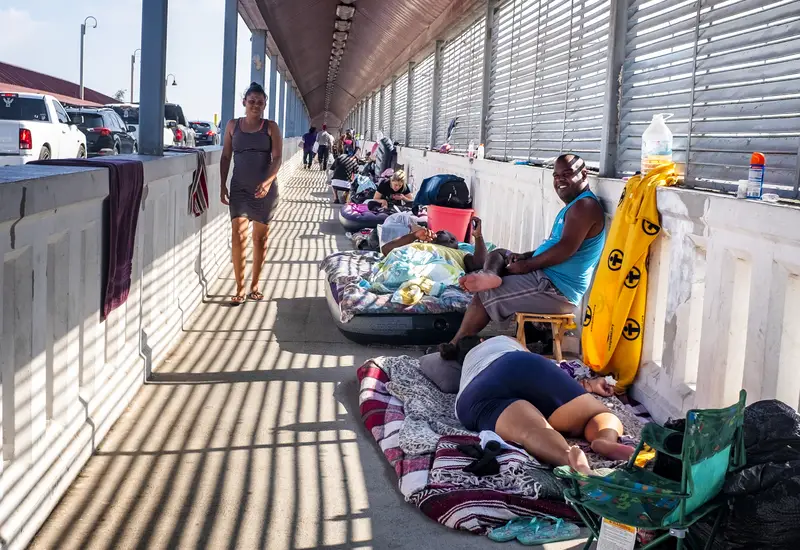“Everything that I’ve been told and every indication tells me that we haven’t seen the worst yet,” US Representative Tony Gonzales warned, as he talked about the border situation in El Paso, Texas. Migrants have flocked to the district, leaving the authorities with serious issues about border processing and space for the migrants.
Currently, El Paso handles an estimated 1,300 migrants per day, a surge from the previous 1,000 per day average four months ago. But with the influx of people, many of these migrants had to be left under a bridge last weekend because the city reached its capacity to process their entry.
El Paso Border Patrol spokesperson, Valeria Morales, said that the processing center is already at double capacity and cannot house migrants permanently. They continue to coordinate with NGOs and local governments and cities to find transportation services and possible housing for the migrants. Hundreds of migrants have been given street or provisional releases.
Deputy City Manager Mario D’Agostino said that they have been talking to the White House regarding the situation and how to help the migrants that are released onto the streets. Meanwhile, funding has also been approved by the El Paso County Commissioners to set up a processing center in the district. Five organizations have also offered to help.
In spite of the hardships that he faced while crossing the border, 48-year-old Luis Alfonso is thankful for El Paso’s hospitality. “If they were to make a movie about our journey – all we endured and all we lived through – it would win an Oscar,” he said. The migrants survive from donations of strangers who drop food, drink, and clothing near areas where they are staying. Migrants such as Luis are released onto the streets when hotels aren’t available. They are then helped to get to their target destinations. Most of them want to be taken to New York.
The migrants, who are mostly from Venezuela, move to the US to escape a life of poverty, violence, and shortages of food and medicine. Some left family members behind since it would be hard to take everyone across the border. They knew how painful the journey would be, but according to them, risking their lives to go to the US “should tell you how bad things were in our countries.”
“It’s a scene that you would see in a third-world country, not in the streets of El Paso,” was Representative Gonzales’ assessment.











